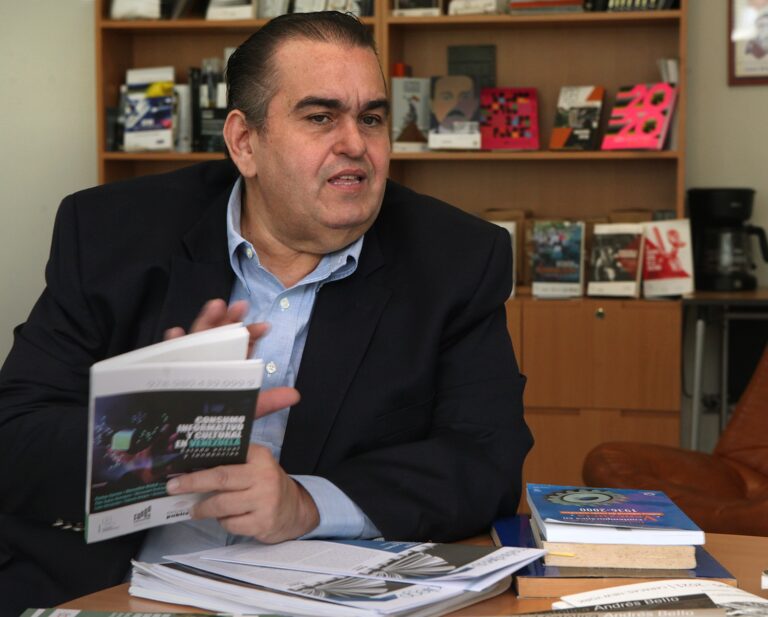Guillermo Zuloaga, one of the largest shareholders of Globovisión, a private TV station announced that the channel will be sold. He admitted that for political, economic and legal reasons, the channel is economically unfeasible.
On March 11, 2013, Guillermo Zuloaga, one of the largest shareholders of Globovisión, a private TV station that operates in Caracas, announced that the channel has received “a formal purchase offer”, implying the sale of the station to a new shareholder. He admitted that for political, economic and legal reasons, that make the channel economically unfeasible, negotiations shall take place until after April 14, the day of the presidential elections.
In a letter sent to the channel’s employees, Zuloaga stated that he was compelled to accept the purchase proposal presented by Juan Domingo Cordero, an investor and business representative of the nation’s private banking sector.
He said that “We are economically unviable because our revenues no longer cover our cash needs. We cannot even raise the salaries to compensate for the inflation and even less to compensate for the devaluation. We are politically at jeopardy, since we are in a completely polarized country and we are on the other side of an almighty government that wishes to see us fail. We are legally at stake because our license ends soon and there is no willingness by the holders of renewing it.”
Zuloaga also stated that due to the discord and threats issued by the national government he also doubts that the National Telecommunications Commission (Conatel) -the entity in charge of regulating the nation’s radio-electric spectrum- will renew the channel’s license to operate in open signal in Caracas and other states in the country’s central region, after it expires in 2015.
Political Party Interests
At the same time, Zuloaga admitted that the company line was inclined towards the opposing political sector in the presidential elections held in October 2012, when President Hugo Chávez was re-elected. “I took the decision to do everything in our power, risking the shareholders’ capital stock and conscious of the implications of this action, to get the opposition to win the October elections. It was the opportunity, as Venezuelans, to get our country back on track. We did an excellent job at Globovisión and we almost achieved it, but the opposition lost”.
Articles 57 and 58 of the Constitution of the Bolivarian Republic of Venezuela guarantee the right to freedom of expression and that information must be plural and impartial.
Any direct or indirect action or pressures, fostered by state entities or individuals (governments or private enterprise), affecting the principles of plurality and impartiality or aiming at silencing ideas and opinions run counter to freedom of expression and the right to information.
Elections watershed
The announcement of the channel sale negotiation was made six days after the death of President Hugo Chávez, and two days after the National Elections Council announced that the presidential elections would take place on April 14, 2013. The official party candidate is Nicolás Maduro, who was sworn in by the legislative power as the president in charge. Henrique Capriles Radonski is backed by the opposing forces grouped under the Mesa de la Unidad Democrática and there are three other candidates.
Although several journalists from the station have stated that the outlet shall continue use the critical line which has characterized Globovisión, the possible sale of the channel could generate uncertainty for Globovisión in coming weeks, which shall focus on the nation’s elections watershed.


